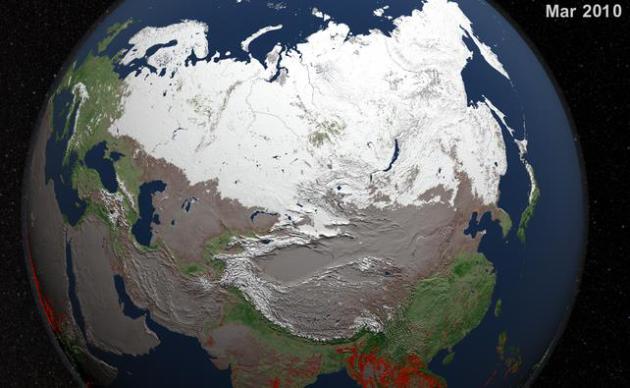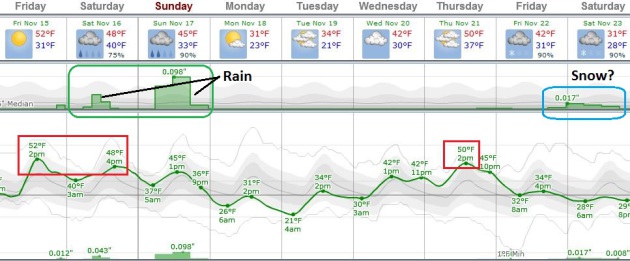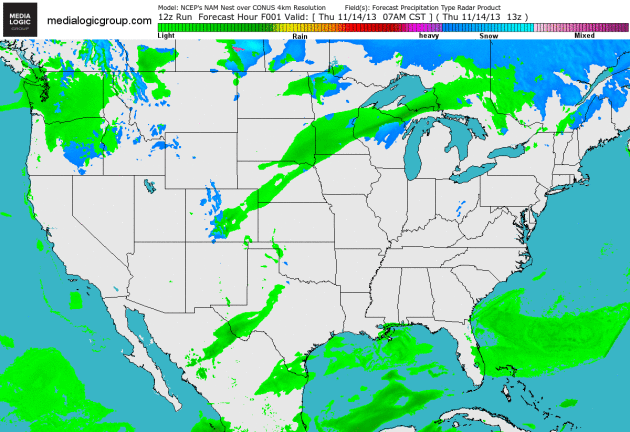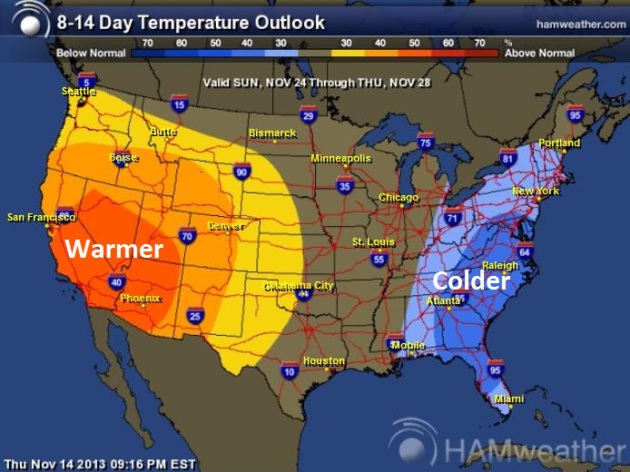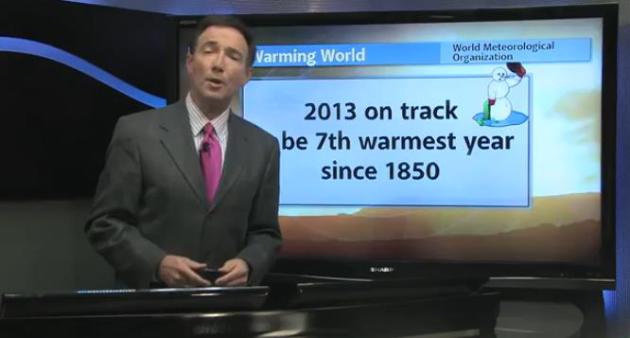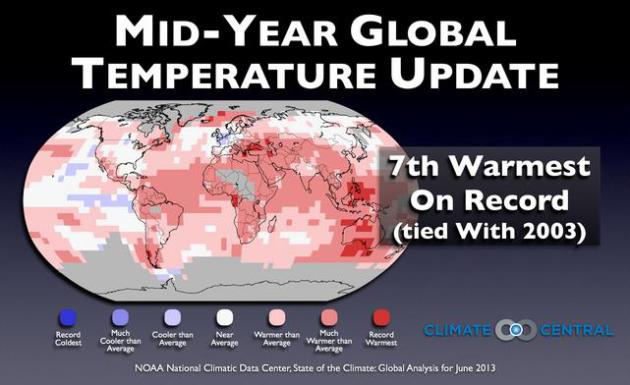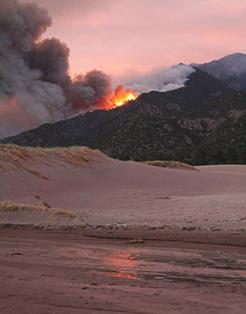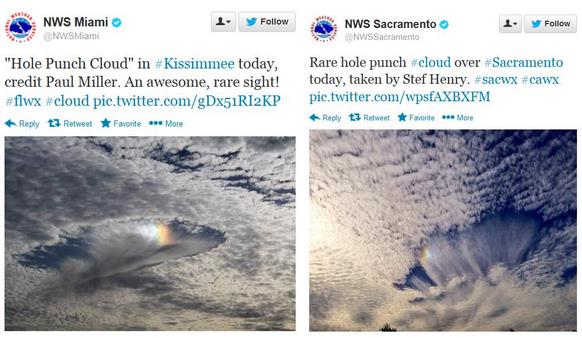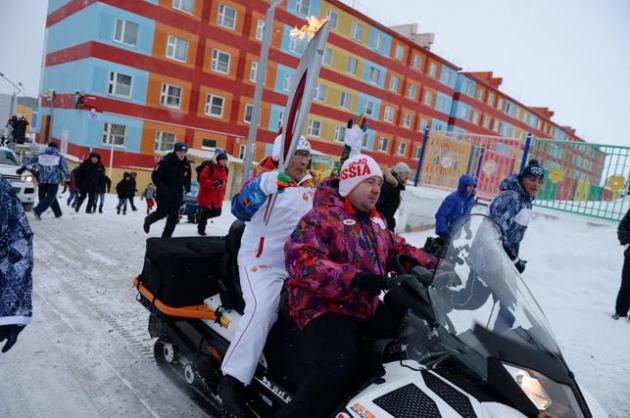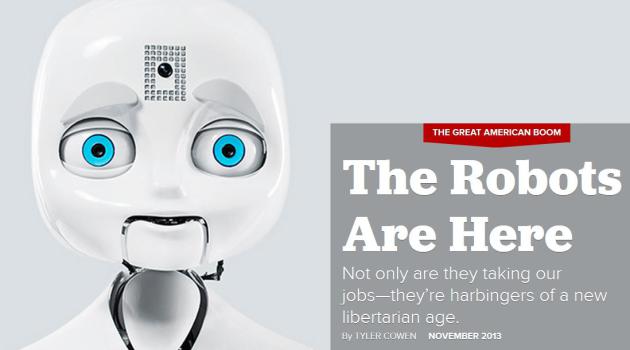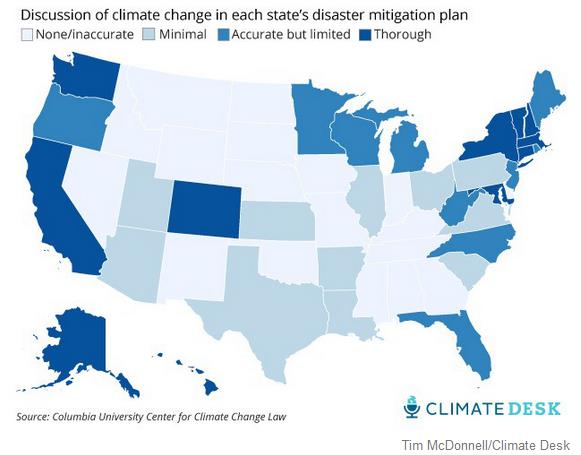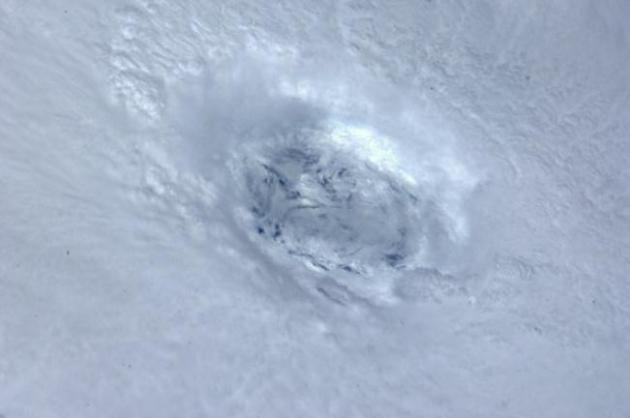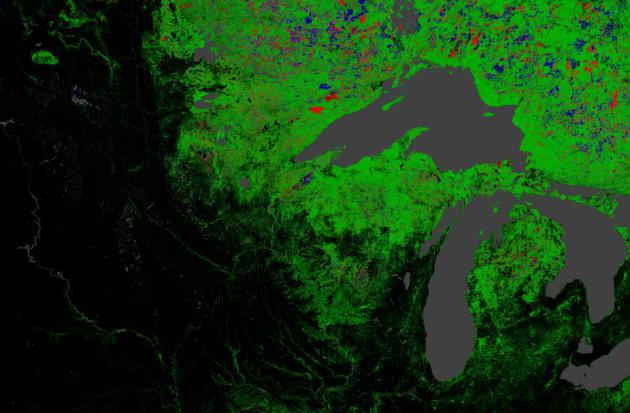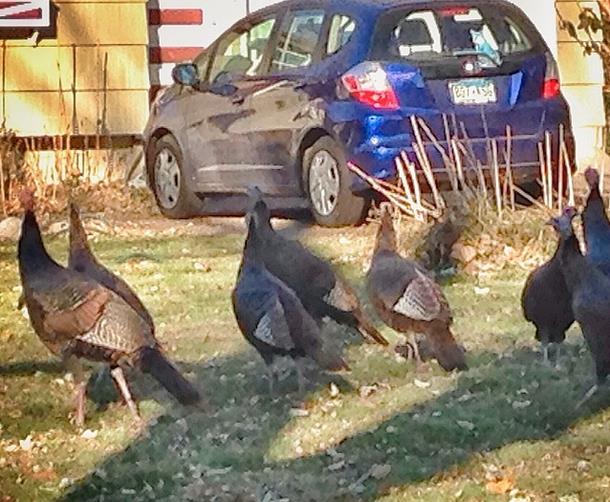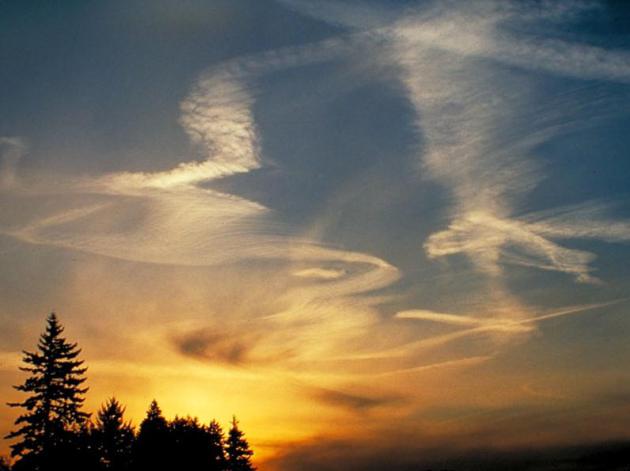A Siberian Clue?
If
we're knee-deep in snow come January - blame (or thank) Siberia.
Everyone is looking for clues, short-cuts to the proverbial question:
"What will our winter be like? Snowier? Colder? Go ahead, throw a few
darts, Paul. Good luck!"
Bloomberg
just ran a story about Judah Cohen, a forecaster at Atmosphere and
Environmental Research in Massachusetts. He says a good predictor of
U.S. winter snowfall is autumn snows over Asia and Siberia. More snow
than average can nudge the atmosphere into a colder, stormier, negative
phase of the AO, the Arctic Oscillation.
Looking at the data, some
of our snowiest winters correlate with unusually snowy autumns in
Novosibirsk, Siberia. Go figure. For the record: September saw 911,000
square miles of snow cover across northern Europe & Asia; 57 percent
more than usual. The system is not foolproof, but snow lovers should
take heart.
We top 50F today, the atmosphere warm enough for
weekend rain; maybe a coating of slush Sunday night as temperatures
tumble. A chilly start to the work week gives rise to more 40s, maybe
50F next Thursday, before more Canadian leakage.
The ECMWF is hinting at snow one week from tomorrow. Thanksgiving is sneaking up. What can possibly go wrong?
* image above courtesy of NASA.
Weekend Puddles.
After peaking in the low 50s today (10 degrees above average for
mid-November) a southern storm pushes a couple of shields of rain into
Minnesota this weekend; light rain Saturday - potentially heavier rain
Sunday, ending as a little slushy snow by Sunday evening/night. Right
now no significant accumulation is expected. After a couple of cold days
early next week temperatures moderate before cooling down the following
weekend, long-range ECMWF guidance hinting at some light snow on
Saturday, November 23. We'll see. Confidence levels are low this far
out.
Southern Moisture.
NOAA's NAM model shows heavy snow for the Rockies and Pacific
Northwest; this surge of Pacific energy spinning up rain late Friday and
Saturday across the Plains and Midwest. Animation courtesy of Ham
Weather.
Modified Zonal Flow.
As long as steering winds aloft are howling from west to east it will
be difficult to get (sustained ) cold waves into Minnesota and the rest
of the USA; NOAA guidance from November 20-24 shows the coldest air of
November remaining over Alaska and far northern Canada. For now.
Red States And Blue States.
The forecast for the days leading up to Thanksgiving suggest a cold
bias for much of the eastern USA; warmer than average readings west of
the Rockies. Temperatures over the central U.S. are forecast to run
close to average. Map: NOAA CPC and
Ham Weather.
7th Warmest Year On Record, To Date. Today's edition of
Climate Matters
looks at new data released from the WMO, The World Meteorological
Agency, showing a continuation of unusually warm temperatures,
worldwide, for the first 9 months of 2013. That doesn't mean winter has
been postponed - as a few climate scientists told me recently, "if it
ever gets to the point where it doesn't snow - ever - we'll have much
bigger problems to deal with."
2013 "One Of Warmest" On Record.
The BBC has an update; here's an excerpt: "...Of the broad pattern, he said: “
All
of the warmest years have been since 1998, and this year once again
continues the underlying, long-term trend. The coldest years now are
warmer than the hottest years before 1998. "Atmospheric concentrations
of carbon dioxide and other greenhouse gases reached new highs in 2012,
and we expect them to reach unprecedented levels yet again in 2013. This
means that we are committed to a warmer future. "Surface temperatures
are only part of the wider picture of our changing climate. The impact
on our water cycle is already becoming apparent - as manifested by
droughts, floods and extreme precipitation..."
Graphic credit above: Climate Central, NOAA NCDC.
Scientists Nearing Forecasts Of Long-Lived Wildfires.
UCAR has the story - here's the introduction: "
BOULDER—Scientists
have developed a new computer modeling technique that offers the
promise, for the first time, of producing continually updated daylong
predictions of wildfire growth throughout the lifetime of long-lived
blazes. The technique, devised by scientists at the National Center for
Atmospheric Research (NCAR) and the University of Maryland, combines
cutting-edge simulations portraying the interaction of weather and fire
behavior with newly available satellite observations of active
wildfires. Updated with new observations every 12 hours, the computer
model predicts critical details such as the extent of the blaze and
changes in its behavior..."
Photo credit above: "
On
June 6, 2010, lightning ignited the Medano Fire in Great Sand Dunes
National Park in Colorado. By the time this image was taken on June 23,
more than 5,000 acres had burned." ©UCAR. Photo by David Hosansky.
Yesterday: National Hole Punch Day! For an explanation on how these form
click here.
The Sochi Olympics Are A Five-Ring Mess. A last minute scramble to get ready has created an environmental mess, according to this article at
Outside Magazine; here's an excerpt: "
In 2010, the people of Russia were asked to design an Olympic mascot,
and the people responded—creating 24,000 cartoon bears, tigers, saints,
snowflakes, witches, and wolves in just three months, a forest of
candidates, a seeming triumph of democracy. The upcoming 2014 Winter
Olympics, in the southerly city of Sochi, had until then been Vladimir
Putin’s pet project. The new Russia was to be showcased at the
president’s favorite Russian ski area and coastal resort, with
facilities in the Caucasus Mountains and along the Black Sea built from
scratch by his most favored oligarchs..."
Image credit above: "
In
this photo taken on Monday, Nov. 11, 2013 and provided by
Olympictorch2014.com, an Olympic torch bearer holds an Olympic torch
during the torch relay in Anadyr, a port town and the administrative
center of Chukotka, Russia. The relay for the Sochi Winter Games, which
began on Oct. 7 2013 in Moscow, will pass through many cities that
showcase the historical, cultural and ethnic richness of Russia." (AP Photo/Olympictorch2014.com).
Here Are 103 Ways To Cut The Deficit. I found this interesting, an excerpt from a Wonkblog story at
The Washington Post: "
So
you want to reduce America's budget deficit? Here are your options. 103
of them, to be exact. A few highlights at random. The savings listed
are for the ten-year period from 2014 through 2023:
— Reduce Subsidies to Fannie Mae and Freddie Mac, $19 billion
— Reduce Social Security Benefits for New Beneficiaries by 15 Percent, $188 billion
— Raise tax rates on long-term capital gains and dividends: $53.4 billion
— Impose a Tax on Emissions of Greenhouse Gases, $1.1 trillion
— Increase the Excise Tax on Cigarettes by 50 Cents per Pack, $37 billion..."
* have a little extra time on your hands? The entire 300+ page PDF from the CBO, the Congressional Business Office, is
here.
First Impressions: iPad Mini With Retina Display.
Gizmag has a thorough review - here's an excerpt: "
When Apple announced that the iPad mini with Retina Display
was coming "later in November," most of us assumed that meant the end
of the month. Well, who said Apple couldn't surprise us anymore?
Yesterday the company quietly launched the highly anticipated tablet,
and, despite limited supplies, we got our hands on the Retina iPad mini.
Read on for our first impressions. If you've used the original iPad
mini, then you already know the basic design and feel of the iPad mini
with Retina Display. And if you've used any high-res Apple device, then
you know what a Retina Display looks like. Put the two together, and,
surprise surprise, that's pretty much what you're dealing with here..."
The Robots Are Here.
In a world of automation, outsourcing, and increasing use of robots to
do repetitive jobs, will there be a place for human employees in 10-20
years? It sounds absurd, but think of how many jobs have been blown up
by computers in the last 3 decades. Here's an excerpt of an excellent
article at
Politico:
"...
Nearly 60 years after Asimov anticipated a decidedly dramatic
intrusion of machines into our politics, we may not (yet) be offloading
our democratic responsibilities to computers, but we are empowering them
to reshape our economy and society in ways that could be just as
profound. The rise of smart machines—technologies that encompass
everything from artificial intelligence to industrial robots to the
smartphones in our pockets—is changing how we live, work and play. Less
acknowledged, perhaps, is what all this technological change portends:
nothing short of a new political order..."
For People Who Just Can't Get Enough Disney.
Yes, now you can live right on the Disneyworld property, with special
access to everything (Disney) your heart desires. It won't come cheap
though, as an article at
The Daily Mail Online shows; here's a clip: "
For
many, a trip to Disney is the holiday of a lifetime, but what if you
decided to spend your lifetime at Disney? There is a select group of
people for whom this idea is no fantasyland, but a reality. The Walt
Disney Company has created a gated community known as Golden Oak - named
after the company's California ranch. It's the only place in the world
where homeowners actually live on Disney park property..."
The Turkeys Are Nervous. Thanks to Greg Kjosy for passing this one along.
Climate Stories...
“
All
of the warmest years have been since 1998, and this year once again
continues the underlying, long-term trend. The coldest years now are
warmer than the hottest years before 1998." -
Michel Jarraud, Secretary-General, World Meteorological Organization, BBC
Report Warns Of Climate Threat To Minnesota Big Game. Hunters and fishing enthusiasts are already reporting changes, statewide. Here's an excerpt of a story from AP and
The News Tribune: "...
The
exact reasons aren't clear. But those factors are all associated with
climate change, said Leslie McInenly, big game program leader with the
Minnesota Department of Natural Resources.Moose aren't the only big game
animals in danger in Minnesota. Inkley and McInenly said even highly
adaptable species such as white-tailed deer and black bears are at risk.
So is the state's small elk population. They cited threats from
diseases, drought and habitat changes that a warmer climate could bring..."
Read more here: http://www.thenewstribune.com/2013/11/14/2891131/report-warns-of-climate-threat.html#storylink=cpy
Is Your State Ready For Climate Disasters? Here's an excerpt of an interesting story at
Grist: "
Whether it’s wildfires in the West, drought in the Midwest, or sea-level rise on the Eastern seaboard, chances are good
your state is in for its own breed of climate-related disasters. Every
state is required to file a State Hazard Mitigation Plan with FEMA,
which lays out risks for that state and its protocols for handling
catastrophe. But as a new analysis
[PDF] from Columbia University’s Center for Climate Change Law reveals,
many states’ plans do not take climate change into account. Michael
Gerrard, the Center’s director, said his team combed through all 50
reports to see how accurately and comprehensively climate change was
taken into consideration, if at all, and grouped them into four ranked
categories..."
Climate Change Makes Super Typhoons Worse, Says U.N. Meteorological Agency. The simple reason? Higher sea levels, worldwide, which even the most ardent skeptic can't dismiss. Here's an excerpt from
The Australian Broadcasting Corporation: "
The
United Nations meteorological agency has found the effects of climate
change are making the impact of severe storms like Typhoon Haiyan worse.
The World Meteorological Organisation's Michel Jarraud says Australia's
record-breaking summer helped push average global temperatures higher
this year, and rising sea levels worsened the situation in the
Philippines. "The impact of this cyclone was definitely significantly
more than what it would have been 100 years ago because of the simple
mechanical fact that the sea level is higher," Mr Jarraud said..."
"I Can't Say Haiyan Was Caused By Climate Change...But..." Here's an excerpt of a
very thoughtful post on the severity of Haiyan and possible attribution to climate change and warming seas: "...
I
participated in a study for the U.S. Navy by the National Academy of
Science. In this report, we warned about vulnerabilities to climate
change and potential climate refugees being a source of conflict and
instability. We also warned that U.S. military assets would be stretched
to the limited by humanitarian and disaster response. The report can be
found at http://www.nap.edu/catalog.php?record_id=12914 .
Admiral Locklear, the U.S. Pacific Commander, probably was thinking
along such lines when he said, “ the biggest long-term security threat
in the Pacific region is climate change.” (http://www.bostonglobe.com/news/nation/2013/03/09/admiral-samuel-locklear-commander-pacific-forces-warns-that-climate-change-top-threat/BHdPVCLrWEMxRe9IXJZcHL/story.html).
I am not writing this to determine whether your ideology, belief
system, or data lines up with Locklear’s statement. I wrote this
because I am heartbroken at the images that I continue to see, and I
wanted to offer what I believe is reasonable, fair context, irrespective
of your viewpoint. Praying for 2 things as I write this: the victims of
the Haiyan and spirited, respectful science discourse..."
Photo credit above: "
A
typhoon victim carries a bag of relief goods she received as she stands
among ruins in Tacloban, Philippines, Nov. 14, 2013. The official death
toll for Tacloban rose to 2,000 Thursday, six days after the city was
largely destroyed by Typhoon Haiyan." (Jes Aznar/The New York Times).
New Interactive Tool Helps Track Earth's Forests. We need those forests to soak up carbon dioxide and generate oxygen - here's an excerpt of a story at
The New York Times: "...
By
providing a record of changes in forested areas across the globe, the
tool can be used to help track threats to biodiversity, the
effectiveness of policies that protect forest areas and the release of
carbon long tied up in trees and other organic material, among other
forest health issues. Trees absorb carbon dioxide for use in
photosynthesis, serving as one of the most effective natural tools to
remove the greenhouse gas from the atmosphere..."
* the new interactive forest-tracking tool is here.
Plug in your zip code and see if nearby forests have expanded or
contracted close to home. Courtesy: University of Maryland and Google.
Image credit above: "
Results from time-series analysis of 654,178
Landsat images in characterizing forest extent and change, 2000–2012.
Trees are defined as all vegetation taller than 5m in height and are
expressed as a percentage per output grid cell as ‘2000 Percent Tree
Cover’. ‘Forest Loss’ is defined as a stand-replacement disturbance, or a
change from a forest to non-forest state. ‘Forest Gain’ is defined as
the inverse of loss, or a non-forest to forest change entirely within
the study period. ‘Forest Loss Year’ is a disaggregation of total
‘Forest Loss’ to annual time scales."
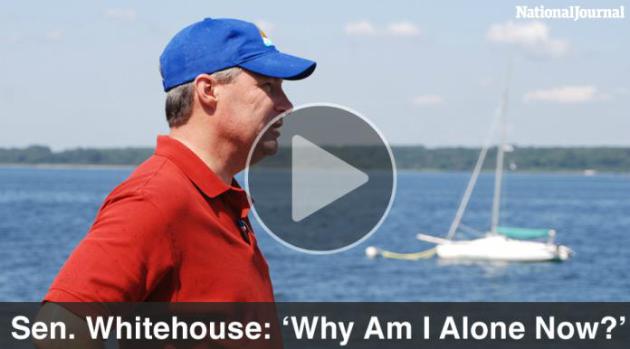
Why Would Anyone Want To Be The Next Al Gore? The National Journal has the story (and video); here's the introduction: "
When
Sheldon Whitehouse makes his 50th climate speech on the Senate floor
this week, he'll likely face a deserted chamber. Climate change is about
as dead a political platform as you can find these days, something most
politicians will go to great lengths to avoid. But the Rhode Island
Democrat is intent on making it his issue, even if it seems like he's
talking to himself week after week. Does it feel lonely, being the only
one up there talking about it? "Yeah, absolutely," Whitehouse said.
"What's frustrating about feeling lonely is that I think this is an
issue that we would win, in that the American public would win, if we
simply put our minds to it, put our attention to it and took it up..."
One Senator's War Against Climate Change.
Bloomberg has a slightly different perspective on the lonely battle being waged by Sheldon Whitehouse; here's a clip: "...
Still,
Whitehouse remains optimistic. “There is a path before us,” he said in a
phone interview. “The first part has already been done, and that is the
president’s climate action plan for new and existing power plants. When
faced with the cost of compliance I think those polluters might well
decide that an economywide carbon fee makes more sense. The second is
people are starting to fight over this issue in elections in a very big
way. I think you’ll see deniers pay a heavier electoral price.” To
Whitehouse, this isn’t just an isolated policy issue. It’s a test of
American democracy -- one that might reverberate long into the future.
’’What if the world takes notice of what is already happening all around
them, and takes notice of how we blew it at dealing with carbon
pollution, and, as a result, turns away from our great American
experiment, because of this conspicuous and consequential failure of
American democratic governance and leadership?’’ he asked in a speech in
July..."
